Marlon James, The Man Booker Prize–Winning Novelist Whose New Book, Black Leopard, Red Wolf, Is The First Title Of An Epic Fantasy Trilogy, Sits Down With Kima Jones For A Wide-ranging Conversation about Los Angeles, Literary Fame, Facebook,and The Freedom Of Genre-defying Fiction.

MARLON James and I have met before, many times, but never in Los Angeles. A Facebook update this morning in-forms me that James’s favorite city in America is L.A. I’m waiting for him in the lobby of the Line hotel, Koreatown’s very hip, very industrial, very dope—to quote its enthusiasts—singular travel destination, but I’m worried about the noise. Elevator jazz is playing overhead, and the aqua-blue couches and glass dining tables are packed with folks just like us talking about business deals, and art, and literature, and vastness, and coffee roasters, and Hollywood. When he arrives we sit at the far back of the lobby, away from the bustling entrance. I ask, “Why is Los Angeles your favorite city?” and he says “ha” in the new way we’ve all come to share the sentiment: being reminded that hundreds, sometimes thousands of “friends” and “followers” are reading the minutiae of our daily lives, even if they don’t click Like or leave a comment. The practice is popularly known as lurking. I call it research. “I still think art can happen here,” he says. “New York has museums, but museums aren’t culture. Museums are a graveyard for culture. If I am this year’s Patti Smith, I cannot go to New York, but I can still go to Los Angeles. There’s a sense of possibility here. Kendrick, and Anderson. Paak, the Black Hippy movement, Kamasi Washington, all of that is Los Angeles.” He turns the question on me, and I don’t even need to think about the answer. I love the desert, the mythos of the Western frontier, the apocalypse. “I’m going to die in the desert,” I say, and we both briefly acknowledge the setting sun, pink with hints of orange, bouncing off the backs of buses moving slowly down Wilshire Boulevard, before getting down to business.
Denne historien er fra March - April 2019-utgaven av Poets & Writers Magazine.
Start din 7-dagers gratis prøveperiode på Magzter GOLD for å få tilgang til tusenvis av utvalgte premiumhistorier og 9000+ magasiner og aviser.
Allerede abonnent ? Logg på
Denne historien er fra March - April 2019-utgaven av Poets & Writers Magazine.
Start din 7-dagers gratis prøveperiode på Magzter GOLD for å få tilgang til tusenvis av utvalgte premiumhistorier og 9000+ magasiner og aviser.
Allerede abonnent? Logg på

Literary MagNet
When Greg Marshall began writing the essays that would become his memoir, Leg: The Story of a Limb and the Boy Who Grew From It (Abrams Press, June 2023), he wanted to explore growing up in Utah and what he calls \"the oddball occurrences in my oddball family.\" He says, \"I wanted to call the book Long-Term Side Effects of Accutane and pitch it as Six Feet Under meets The Wonder Years.\" But in 2014 he discovered his diagnosis of cerebral palsy, information his family had withheld from him for nearly thirty years, telling him he had \"tight tendons\" in his leg. This revelation shifted the focus of the project, which became an \"investigation into selfhood, uncovering the untold story of my body,\" says Marshall. Irreverent and playful, Leg reckons with disability, illness, queerness, and the process of understanding our families and ourselves.
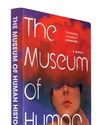
THE MEUSEUM OF HUMAN HISTORY
READING The Museum of Human History felt like listening to a great harmonic hum. After I finished it I found the hum lingering in my ears. Its echo continued for days.
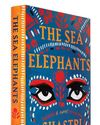
The Sea Elephants
SHASTRI Akella's poised, elegant debut, The Sea Elephants, is a bildungsroman of a young man who joins a street theater group in India after fleeing his father's violent disapproval, the death of his twin sisters, and his mother's unfathomable grief.
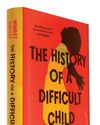
The History of a Difficult Child
MIHRET Sibhat's debut novel begins with God dumping rain on a small Ethiopian town as though. He were mad at somebody.
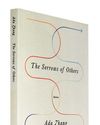
The Sorrows of Others
AS I read each story in Ada Zhang’s brilliant collection, The Sorrows of Others, within the first few paragraphs— sometimes the first few sentences— I felt I understood the characters intimately and profoundly, such that every choice they made, no matter how radical, ill-advised, or baffling to those around them, seemed inevitable and true to me.
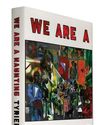
We Are a Haunting
TYRIEK White’s debut novel, We Are a Haunting, strikes me as both a love letter to New York City and a kind of elegy.

RADICAL ATTENTION
IN HER LATEST BOOK, THE LIGHT ROOM: ON ART AND CARE, PUBLISHED BY RIVERHEAD BOOKS IN JULY, KATE ZAMBRENO CELEBRATES THE ETHICAL WORK OF CAREGIVING, THE SMALL JOYS OF ORDINARY LIFE, AND AN ENGAGEMENT WITH THE NATURAL WORLD WITHIN HUMAN SPACES.

The Fine Print
HOW TO READ YOUR BOOK CONTRACT

First
GINA CHUNG'S SEA CHANGE
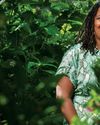
Blooming how she must
WITH ROOTS IN NATURE WRITING, ENVIRONMENTAL JUSTICE, POETRY, AND PHOTOGRAPHY, CAMILLE T. DUNGY'S NEW BOOK, SOIL: THE STORY OF A BLACK MOTHER'S GARDEN, DELVES INTO THE PERSONAL AND POLITICAL ACT OF CULTIVATING AND DIVERSIFYING A GARDEN OF HERBS, VEGETABLES, FLOWERS, AND OTHER PLANTS IN THE PREDOMINANTLY WHITE COMMUNITY OF FORT COLLINS, COLORADO.